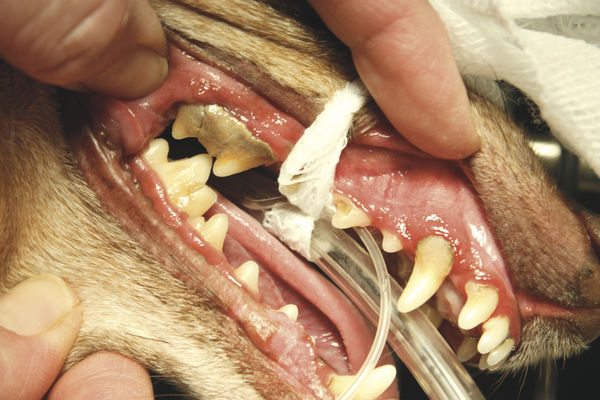Prepare Your Pet for Spring
With the hard winter we have had, I have been doing everything in my power to get in the mindset of SPRING which is just around the corner! Spring cleaning, yard cleaning, gardening, and spring walks with the kids and dogs are only weeks away! One of my goals before spring is to make a decision on what preventatives to start my dogs on which will help protect them from diseases carried by common parasites.
Most of you know about the little jumping critters that can invade your home and live a nice happy existence drinking the blood from your dog or cat. Fleas are commonly acquired from the environment or from other pets throughout the year. Fleas can cause a variety of problems from blood loss to skin allergies. Fleas can very easily be controlled with a simple once monthly topical or oral treatment. But did you know about other common parasites that are becoming more prevalent in our area? Ticks have been becoming more and more common in recent years. Ticks prefer any temperature above 40 degrees. In the early spring and fall they are the most active especially in wooded areas, in tall grasses, or in areas where deer have been.
The deer tick is the carrier of Lyme disease, a condition caused by a bacterium that leads to fever, chronic painful arthritis, kidney disease, and possible heart disease. We highly recommend a flea and tick preventative combo from minimum late March to early November. If your pet is at higher risk also consider starting them on the yearly Lyme vaccine. The vaccine we carry at my clinic is called Recombitek. It is a very safe vaccine that does not include any chemical adjuvants, therefore it has very low risk of a reaction. In January 2013, I decided to start vaccinating my dogs and doing year round flea/tick control when two out of three of my dogs came home from our walk in the woods on one of those rare warm winter days with deer ticks! Fortunately neither dog acquired Lyme disease, but after seeing the outcome of this disease first hand in client’ pets, from then on I didn’t want to risk it.
The other parasite that is becoming more common is the heartworm. This is an internal parasite that is carried by mosquitoes. In the past two weeks our clinic has diagnosed and is in the process of treating three local heartworm positive dogs. There is a true reservoir in our area for the spread of heartworm disease. Treatment is very expensive therefore prevention is the key! A monthly topical or oral medication is given that kills the larval form of heartworm preventing them from becoming the adult worms that damage the heart and lungs. A yearly heartworm blood test is a simple procedure and inexpensive to ensure your pet has not picked up these deadly parasites! Our heartworm test also tests for Lyme disease and 2 other tick born diseases. We highly recommend this blood test even if your pet is on preventatives.
Finally dogs and cats in our area commonly pick up intestinal parasites. It is very important to test your pet’s fecal once to twice yearly. Some parasite eggs are very hardy and can survive months in even the coldest temperatures. Intestinal parasites can cause significant weight loss, diarrhea, and poor health. Some may also be transmitted to humans especially children; therefore it is very important to have your veterinarian check your pet’s fecal on a regular basis.
Prevention again is key! Ask your veterinarian what options they have available for preventative medications. Protect your pets from these debilitating parasites and you will give them the quality of life that they deserve!


 I am not perfect and as a veterinarian I have made mistakes. However, I believe that most people in an animal care profession like mine are working toward a common goal. We love your pets as much as you do, and the goal is to provide them with the best quality of life that we can by doing what we think is best for the pet. Although some clients may not agree with recommendations, we are here to provide the best advice we can as if your pet were our own.
I am not perfect and as a veterinarian I have made mistakes. However, I believe that most people in an animal care profession like mine are working toward a common goal. We love your pets as much as you do, and the goal is to provide them with the best quality of life that we can by doing what we think is best for the pet. Although some clients may not agree with recommendations, we are here to provide the best advice we can as if your pet were our own.